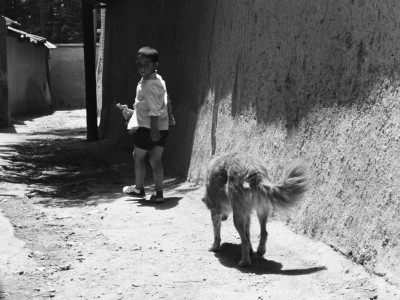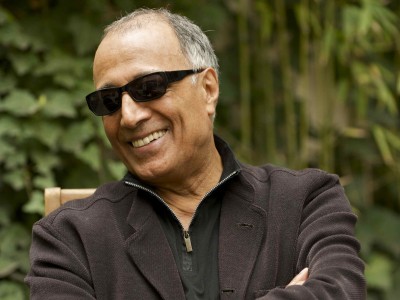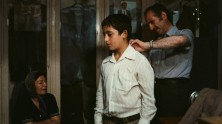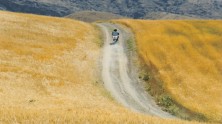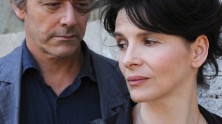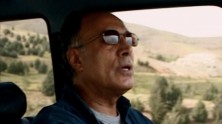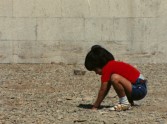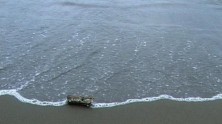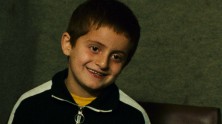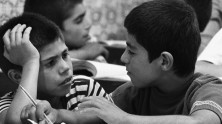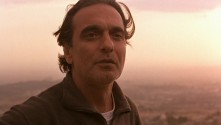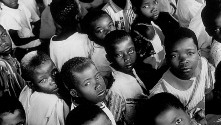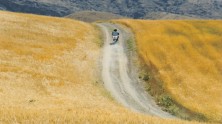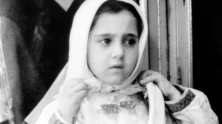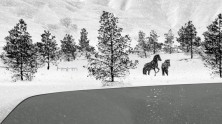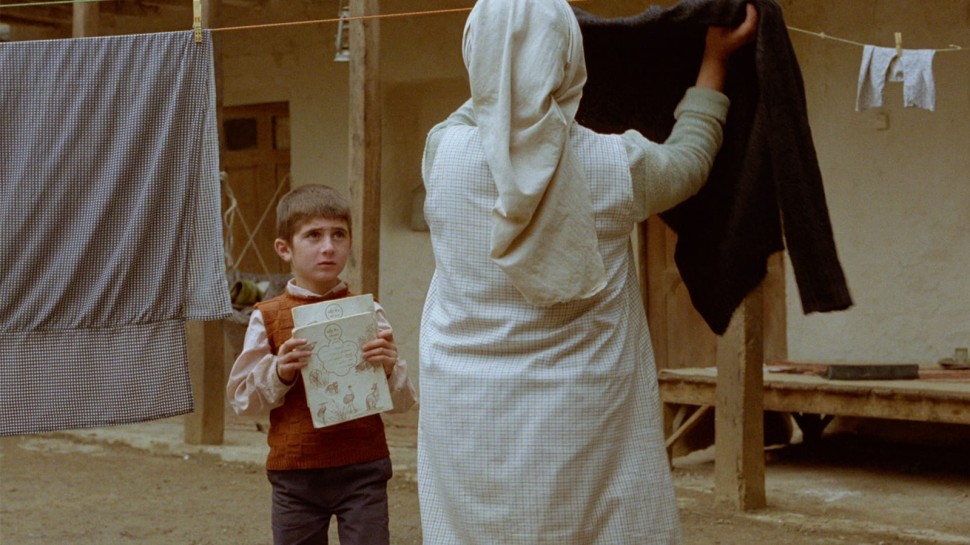
Where is the Friend’s House?
(Khane-ye doust kodjast?)
With Babek Ahmed Poor, Ahmed Ahmed Poor, Khodabakhsh Defaei.
Iran, 1987, DCP, color, 83 min.
Persian with English subtitles.
The problem isn’t that Kiarostami’s films are esoteric, simply that they’re different from Western and other Iranian films alike, in the way they’re put together (without scripts and, in most cases, without professional actors), in the way they address us, and in what Kiarostami includes and leaves out. Where Is the Friend’s House?, one of his most popular films in Iran, is a miniature epic about a schoolboy trying to return a classmate’s notebook. Like the somewhat related And Life Goes On… and Through the Olive Trees, both shot in the same section of northern Iran, this is a sustained meditation on singular landscapes and the way ordinary people live in them; an obsessional quest that takes on the contours of a parable; a concentrated inquiry that raises more questions than it answers; and a comic as well as cosmic poem. It’s about making discoveries and cherishing what’s in the world, including things that we can’t understand. – Jonathan Rosenbaum
Referring to his first film as “the mother” of all the work to follow, Kiarostami focuses on what would be a common subject: the child’s journey. Though in this film, it is not a long one, the path is still filled with significant Kiarostamic traits: dynamically graphic framing, suspenseful ambiguity with tangential distractions, a play with expectation, and a mischievous Western soundtrack—which, in this case, includes a jazz variation on the Beatles’ “Ob-La-Di, Ob-La-Da” which in their version features the refrain “Life Goes On.”
